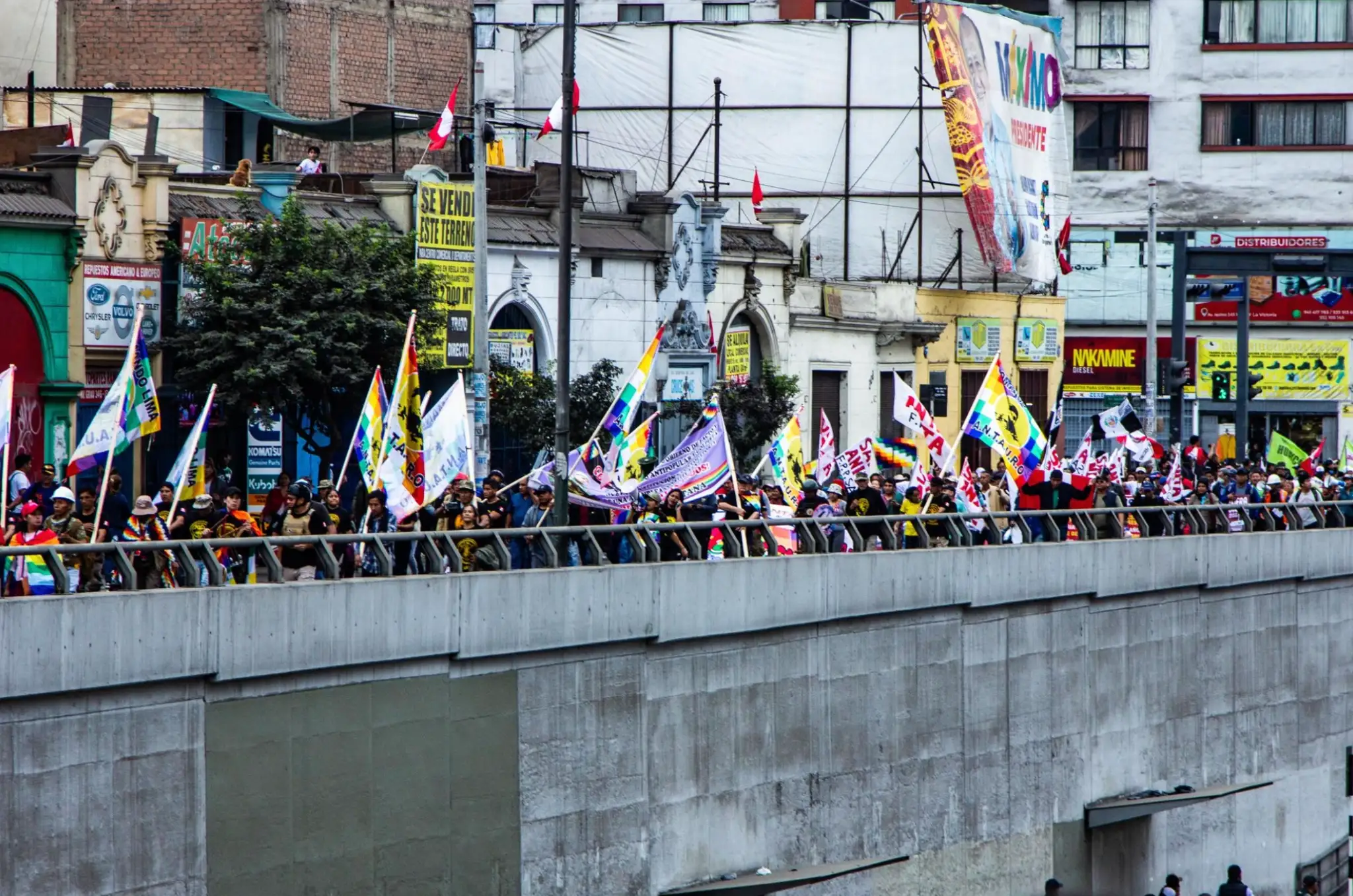After four months of relative appeasement of thousands of citizens who protested throughout the Peruvian territory, this week the country returns to a situation of great concern for its public safety. President Dina Boluarte’s speeches and the efforts of her team have not been enough to prevent the Peruvian population from expressing their discontent with national politics through protests.
Recently, Peru has faced a series of political instability episodes that have been marked by the fall and rise of personalities to power. In the last five years, there have been six different heads of state. The sixth figure to hold such office was elected in 2021 as vice president, after an attempted coup d’état that was marked by the order to dissolve the Congress. On that occasion, President Pedro Castillo was removed from office and arrested in the face of accusations that still hang over the former president. His running mate, current president Dina Boluarte, was the first woman in Peru’s republican history to govern the country.
Boluarte, a lawyer by training and with experience in different positions in Public Administration, took office in December 2022. Already in her first acts as president, she had to face strong protests organized by different sectors of society. At first, a small group of supporters of former President Castillo took to the streets. Gradually, the movements brought together students, workers, women, and different social minority representatives to question the legitimacy of the current government. Although the protests are not unified in their interests, they converge in the desire for the current president to bring forward the elections that constitutionally should be held in 2026.
The reaction of the public authorities to the protests was quite harsh, especially in Ayacucho and Juliaca, two Peruvian cities, where dozens of people were violated (and some were killed) by the National Security Forces, which demanded the immediate halt of the protest movements. Between December 2022 and March 2023, urban violence reached levels that worried even the Inter-American Commission on Human Rights (IACHR), which declared that it was closely monitoring the situation in the country.
In mid-June, after a period of negotiations between the Government and the population, protests resumed. On the eve of the 202nd anniversary of Peru’s independence, the streets of Lima and other parts of the country were again filled with discontent.
The president, who appeared to be negotiating early elections, has begun to signal that she intends to remain in office until the term for which she was formally inaugurated in 2022 expires. In her official speeches, she blames Congress for the impossibility of resolving the impasse. For new elections to be held, the national legislature had to be empowered, which did not happen. In a recent public opinion poll, released by Latinobarómetro, the President has one of the lowest levels of popular approval among Latin American leaders and is only surpassed by the President of Ecuador, Guillermo Lasso.
In a speech of more than three hours before the Congress and the main Peruvian authorities, Boluarte lamented the violence between the security forces and the population, without, however, recognizing herself as responsible for these confrontations. Her speech lacked the mea culpa expected by some sectors of society. The president also advocated a “national reconciliation pact” to restore national public order, which has already suffered unforeseen economic losses.
While reaching out to the population, she also asked Congress to authorize the expansion of the security capabilities of the Executive Branch. The justification was the possibility of criminal groups, including terrorists, taking advantage of the country’s social weakness to commit crimes.
*Translated from Spanish by Janaína Ruviaro da Silva











